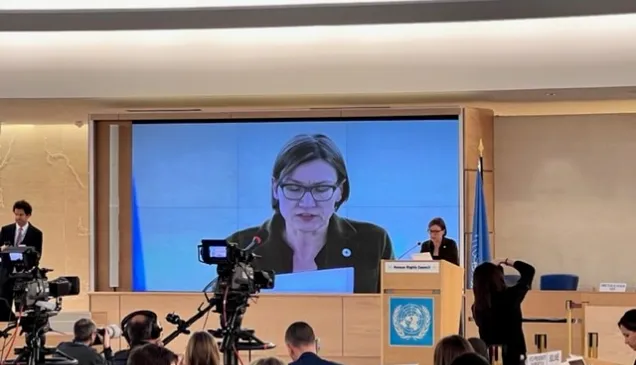Mr President, Excellencies, thank you for giving the ICRC the opportunity to contribute to this important Open Debate on "Peace and security in Africa: Enhancing African capacities in the areas of peace and security". We commend the debate's emphasis on Africa's global importance.
Forty percent of ICRC's resources are invested in Africa, and we place great value in our partnerships with African governments. We will focus on two key drivers of peace and security in Africa: an end to the violence which damages development, and the significance of basic services which make development possible.
The median age in Africa today is nineteen. Urbanization is expanding and land is still plentiful. The African Union (AU) is achieving increasing traction as a regional organization with clear development vision and capacity. Africa's opportunity must not be undermined by the destruction of armed conflict. Peace and security is the first priority of African development. We urge this Council to make every effort to support African States to end African conflicts.
Enhancing IHL Capacities
But where there is no peace there must be greater respect for IHL. Changing the behaviour of many parties to conflict in Africa is essential if African people are to keep hold of the land, health, resources, businesses and education they need to achieve the AU's Agenda 2063. IHL is increasingly prioritized in Africa. Every day we work as partners with African authorities in individual States and at the AU enhancing their capacities to respect and ensure greater respect for IHL - at the operational level, in military and police training, and on legal and military and policy-making.
Progress is clear in the development of African armed forces, and in the AU and its member States' commitment to high standards in the mandates, rules of engagement and conduct of African peace operations. Putting these policies into action in Africa's complex operational environments is always a challenge. Africa and its military partners need to cooperate continuously to solve problems on the ground and ensure compliance with IHL.
Supporting Basic Services
Meeting people's need for basic services – water, health, energy and education – is also key to peace and security. Infrastructure and services are vital to deliver African development. Too often schools, health facilities, water sources and power facilities are destroyed or rendered unsafe in armed conflicts across the continent. These services must be kept safe and functioning for Africa's people.
We work constantly with authorities in Africa to ensure the protection and continuity of basic services but humanitarian aid cannot do this alone.
This is why we are pleased to be working with World Bank in Somalia. Development actors must find ways to enhance State capacity to maintain basic services during conflict. Here, the Chinese government often sets an important example. The Kampala Convention is a model for supporting IDPs.
Mr President, I hope our two suggestions add value. They are particularly important today when millions of Africans face the double vulnerability of armed conflict and drought.


